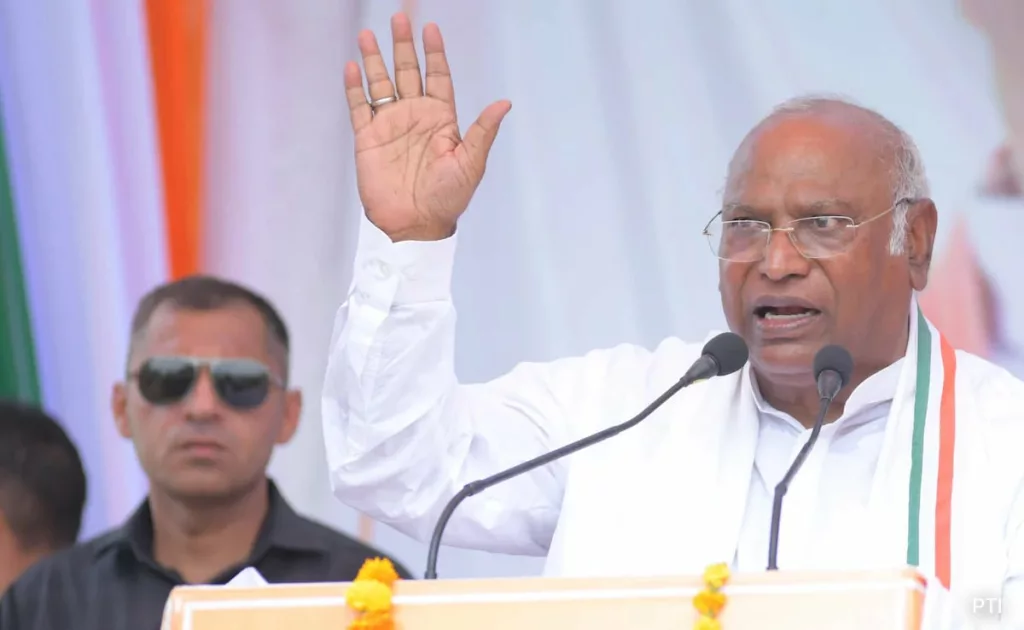Congress chief Mallikarjun Kharge today took a swipe at the Narendra Modi government over what he called was a “government of U-turns”, a day after the Centre announced its approval of the Unified Pension Scheme (UPS).
The UPS provides an assured pension, minimum pension, and assured family pension.
Mr Kharge said the ‘U’ in UPS stands for “Modi government’s U-turns.”
“Post June 4, the power of the people has prevailed over the arrogance of power of the Prime Minister. Rollback in the budget regarding long-term capital gain/indexation, sending Waqf Bill to joint parliamentary committee, rollback of broadcast bill, rollback of lateral entry,” Mr Kharge said in a post on X.
“We will keep ensuring accountability and protect 140 crore Indians from this despotic government,” the Congress chief said.
The ‘U’ in UPS stands for Modi Govt’s U turns!
Post June 4, the power of the people has prevailed over the arrogance of power of the Prime Minister.
– Rollback in the budget regarding Long Term Capital Gain / Indexation
– Sending Waqf Bill to JPC
– Rollback of Broadcast… pic.twitter.com/DJbDoEyl6g
— Mallikarjun Kharge (@kharge) August 25, 2024
In response, BJP spokesperson Tuhin Sinha told NDTV that wherever the Congress rules, such as Telangana and Karnataka, they always end up making a mess of the finances.
“Every morning, they (Congress) come and spread lies. They have nothing to do. The New UPS has been in the works for over a year. Finance Secretary TV Somanathan conducted over 100 meetings before it was finalised. Unlike the Congress, who thinks in extremely hasty manner, and messes up finances where they are in power, in Telangana and Karnataka, the central government takes care before taking key decisions,” Mr Sinha told NDTV.
Fulfilling long-pending demands of government employees ahead of the assembly elections in Haryana and Jammu and Kashmir, the cabinet meeting, chaired by Prime Minister Narendra Modi, approved the UPS.
The new pension scheme also guarantees an assured minimum pension of Rs 10,000 per month on superannuation after a minimum of 10 years of service.
This option scheme will benefit 23 lakh central government employees, and the number would rise to 90 lakh if state governments want to join the scheme.
Under the Old Pension Scheme (OPS), retired government employees received 50 per cent of their last drawn salary as monthly pensions. The amount keeps increasing with the hike in the dearness allowance rates. OPS is not fiscally sustainable as it is not contributory, and the burden on the exchequer keeps mounting.
